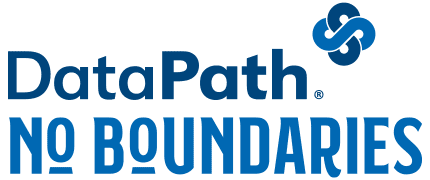The Consolidated Omnibus Budget Reconciliation Act (COBRA) mandates employers to offer continuing health coverage to employees facing qualifying events such as job loss or reduction in work hours. However, navigating the interaction between COBRA and some reimbursement accounts, such as Individual Coverage Health Reimbursement Arrangements (ICHRAs) and Health Reimbursement Arrangements (HRAs), presents complexities.
What are ICHRA and HRA plans?
ICRHAs and HRAs are both exclusively funded by the employer and generally not taxable to the employee, but beyond that, they are not the same. Introduced in 2020, ICHRAs allow companies to reimburse employees for individual health insurance premiums and other medical expenses. HRAs, on the other hand, are linked to group health insurance coverage sponsored by the employer and typically reimburse for eligible out-of-pocket expenses such as deductibles.
Impact of COBRA on ICHRA Plans
Since ICHRAs are not classified as “group health plans” under COBRA regulations, employers are not obligated to offer COBRA continuation coverage to employees who experience a qualifying event. This distinction allows ICHRA plans to be terminated upon an employee’s departure from the company. However, employers must adhere to ERISA requirements, which include providing necessary notices and disclosures to employees enrolled in ICHRAs.
Additionally, some states have their own continuation coverage laws that may apply to ICHRAs. Employers must be mindful of state-specific regulations to ensure full compliance with all applicable laws.
IMPORTANT: Termination from an employer’s ICHRA plan, although it ends the employer’s financial assistance for insurance premiums and other eligible expenses, has no bearing on the employee’s enrollment in the individual healthcare coverage. That is between the employee and their insurance provider.
Impact of COBRA on HRA Plans
Unlike ICHRAs, HRAs are classified as group health plans under COBRA. Consequently, employers must provide COBRA continuation coverage to employees experiencing qualifying events. This coverage ensures that employees have the option to maintain their HRA benefits for a specified period, typically up to 18 months, depending on the nature of the qualifying event.
Employers must also ensure that HRAs remain funded during the COBRA continuation period, consistent with COBRA’s funding requirements. This includes providing appropriate COBRA notices to employees to inform them of their rights to continue their HRA benefits under the COBRA provisions.
Best Practices for Employers
To navigate the complexities of COBRA and ensure compliance with all relevant regulations, employers should consider implementing the following best practices:
- Thorough Documentation: Maintain accurate records of ICHRA and HRA plans, including plan documents, employee communications, and notices. This helps demonstrate compliance with ERISA and COBRA requirements in case of audits or inquiries.
- Stay Informed: Stay abreast of updates and changes in regulations governing ICHRAs, HRAs, and COBRA. Regulatory frameworks can evolve, and employers must adapt their practices accordingly to remain compliant.
- Consultation with Experts: Seek guidance from a third-party administrator, legal counsel, or other benefits advisors and experts specializing in employee benefits and compliance. These professionals can provide valuable insights and ensure that employer practices align with current legal standards.
COBRA significantly impacts the administration of ICHRA and HRA plans. By understanding the distinctions between ICHRAs and HRAs under COBRA, maintaining meticulous documentation, and seeking expert advice as appropriate, employers can effectively manage their employee benefit programs. Compliance with COBRA not only mitigates legal risks but also supports the provision of valuable health benefits to employees during critical periods of transition.
FAQs
Q: Are ICHRAs subject to COBRA?
A: No. Under COBRA, ICHRAs are not group health plans and do not fall under continuation coverage requirements.
Q: Are HRAs subject to COBRA?
A: Yes, HRAs are classified as group health plans under COBRA and must comply with COBRA’s continuation coverage provisions.
Q: What happens to ICHRA coverage when an employee leaves the company?
A: ICHRA coverage can be terminated upon an employee’s departure, as it is not subject to COBRA continuation requirements.
Q: If ICHRA coverage ends on termination, does the employee’s individual insurance coverage also end?
A: No. ICHRA coverage only involves employer reimbursement for part or all of an employee’s premium for an individual health insurance policy. ICHRA termination has no effect on the employee’s enrollment in the individual health coverage.
Q: How long does COBRA coverage last for HRAs?
A: COBRA coverage for HRAs typically lasts for up to 18 months, depending on the qualifying event. Extension is possible under limited circumstances.


